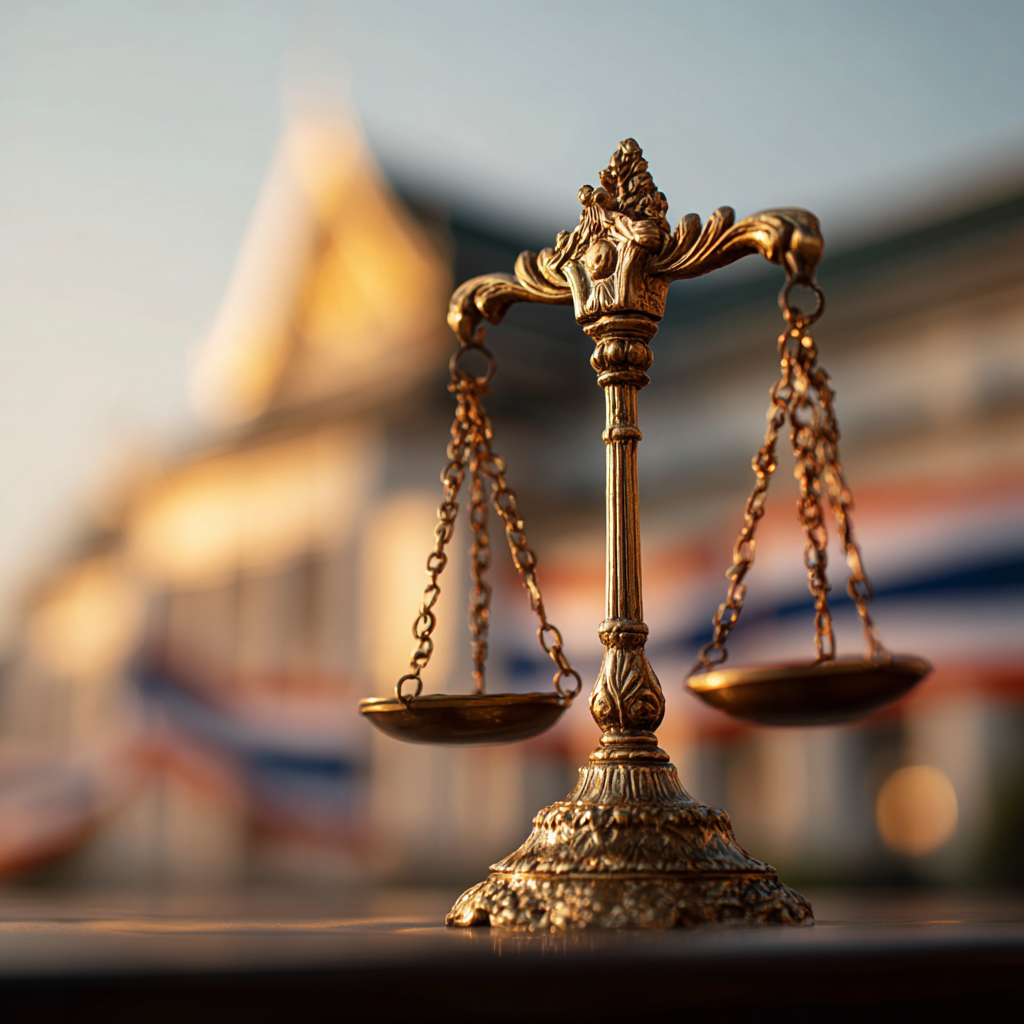In Thailand, certain real rights related to property ownership are important to know, especially for foreigners or investors. Unlike contract rights (which only affect the parties involved), real rights attach to the property itself and apply against everyone.
Two key legal principles govern real rights in Thailand under French Civil Law concepts:
- Droit de suite: The right automatically follows the property even when it changes owner (e.g., through sale, inheritance, or bankruptcy).
- Droit de priorite: Older registered rights have priority over newer ones.
All these rights (usufruct, superficies, habitation, servitude) must be in writing and registered with the Thai Land Office to be valid and enforceable.
Table of Real Rights in Thailand
| Right | What It Is | Key Features | Legal Basis / Notes |
|---|---|---|---|
| Usufruct | Right to use and enjoy another’s immovable property | – Transfers possession, use, and enjoyment – Must be registered – Confirmed by contract/memorandum | Registered right; formal agreement needed |
| Superficies | Right to own buildings or structures on land owned by others | – Separates ownership of buildings from land – Can last up to 30 years, life of landowner, or superficiary – Transferable and inheritable – Must be registered – Can be combined with lease agreements – Fees apply for registration (1.1% of contract value) | Sections 1410-1416 of Civil & Commercial Code Source: Thai Land Department |
| Habitation | Right to live in a house owned by another | – No rent paid – Limited to 30 years max if fixed period – Can be renewed – Not transferable by inheritance | Similar to usufruct but limited to dwelling only |
| Servitude | Right to use or restrict use of one property for benefit of another | – Affects two or more properties (dominant and servient) – Can involve allowing or forbidding certain uses – Registered right | Sections 1387-1401 of Civil & Commercial Code |
More Details on Each Right
Usufruct
- Allows the usufructuary to use and enjoy the property without owning it.
- The agreement must be in writing and registered at the Land Office.
- Commonly used to grant temporary use rights over land or buildings.
Superficies
- Enables a person to build and own structures on land they do not own.
- The right lasts up to 30 years, or for the lifetime of the landowner or the superficiary.
- Remains valid even if the land changes ownership.
- The superficiary may remove buildings upon expiry if land is restored, or must sell to landowner at market value if requested.
- The right continues even if the building is destroyed (e.g., by natural disaster).
- Registration fees are 1.1% of contract value, including stamp duty.
Habitation
- Only covers the right to live in a house, without ownership or rent.
- Cannot be inherited or transferred.
- Usually granted for a lifetime or a maximum of 30 years.
Servitude
- Imposes restrictions or obligations on one property for the benefit of another.
- Example: allowing passage over a neighbor’s land or prohibiting certain uses to protect adjacent property.
- The property burdened is the servient property; the benefiting property is the dominant property.
The “Renewal” Myth of 90-Year Leases
Recent Thai Supreme Court rulings reaffirm that lease agreements are enforceable only for their initial 30-year terms. The widely circulated idea of combining 30+30+30 year leases to reach 90 years is not valid under Thai law.
A legally safer strategy involves combining a 30-year land lease with a registered right of superficies (for buildings), ensuring longer-term control while respecting the law.
Summary
Understanding these property rights is essential when planning to invest or use property in Thailand, especially for foreigners.
- All rights must be registered to be valid and enforceable.
- These rights attach to the property and continue regardless of ownership changes.
- Knowing the distinctions helps avoid legal risks and optimizes long-term use of property.
SOURCES
Civil and Commercial Code, Thailand — Relevant Sections
| Right | Code Sections | Summary |
|---|---|---|
| Usufruct | Sections 1386-1386/1 (general) | Usufruct grants the right to use and enjoy property owned by another without transferring ownership. The usufructuary has the right to use the property and receive its fruits (e.g., income), while preserving the substance of the property. Must be registered and written. |
| Servitude | Sections 1387 to 1401 | Defines servitude as a burden on one immovable property (servient) for the benefit of another (dominant). It can restrict or require certain uses of the property to benefit the dominant land. Includes rules on creation, transfer, and termination of servitude rights. |
| Superficies | Sections 1410 to 1416 | Allows ownership of buildings, structures, or plantations on land owned by someone else. The superficiary owns the structures but not the land. The right can be for a fixed term or life and must be registered. Includes rules on termination, transfer, and obligations upon expiry. |
| Habitation | Sections 1407 to 1409 | Right to live in a house without paying rent. Non-transferable by inheritance. Limited to 30 years if fixed term. Not a lease or tenancy. |
Direct excerpts from the Thailand Civil and Commercial Code (in translation):
- Section 1387 (Servitude definition):
“An immovable property may be subjected to a servitude by virtue of which the owner of such property is bound, for the benefit of another immovable property, to suffer certain acts affecting his property or to refrain from exercising certain rights inherent in his ownership.” - Section 1410 (Right of Superficies):
“The owner of a piece of land may create a right of superficies in favor of another person by giving him the right to own, upon or under the land, buildings, structures or plantations.” - Section 1411:
“Unless otherwise provided, the right of superficies is transferable and transmissible by way of inheritance.” - Section 1416:
“Upon termination, the superficiary may remove structures if they restore the land. If the landowner offers to buy at market value, the superficiary must sell unless there is good reason not to.”
Official Source
You can consult the Thailand Civil and Commercial Code for full legal details. The official text is available (in Thai) from the Thai government websites or legal databases such as:
Need Help Navigating Property Ownership in Thailand?
At Central City Property, we specialize in helping foreigners rent and buy property in Thailand, especially in popular areas like Pattaya. While we do not provide legal advice, we can recommend trusted, qualified real estate lawyers and legal professionals who are experts in Thai property law.
Whether you’re looking for a beachfront condo, a pool villa, or investment property, we’re here to guide you through the process — safely and legally.
📩 Email: contact@centralcityproperty.com
📱 WhatsApp: +66 95 992 0345
🌐 Website: https://centralcityproperty.com




